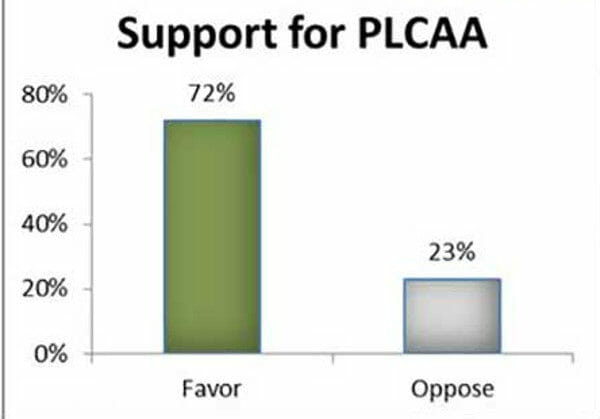
U.S.A. –-(Ammoland.com)-The Supreme Court should agree to hear the appeal of Remington against the Connecticut Supreme Court in their PLCAA decision.
The Connecticut Supreme Court, in a narrow 4-3 decision, ruled a civil case against Remington could go forward in spite of protections by the Protection of Legal Commerce in Arms Act (PLCAA) .
On May 3rd, 2019, the Connecticut Supreme Court granted a stay to the defendants while they appealed the case to the Supreme Court.
Congress explicitly forbid such lawsuits with the Protection of Legal Commerce in Arms Act .
The four judges in the Connecticut Supreme Court ruled the case could fall under the vague and broad Connecticut Unfair Trade Practices Act (CUTPA). The allegation is Remington violated CUTPA by marketing their rifles as being effective in combat, and the marketing was aimed at young people. The claim is the marketing promotes illegal activity. CUTPA forbids marketing that promotes illegal activity.
Such an advertisement only promotes illegal action if you believe militia use of such a firearm is illegal; if you believe training for military use should be illegal; if you believe being armed against tyranny should be illegal.
Unfortunately, a jury in Connecticut might be found which believes these things.
The Connecticut Supreme Court ruled Remington might have violated CUTPA, therefore the lawsuit could proceed on the theory if fit under one of the exceptions to the PLCAA. The exception is: if a firearms seller violated the law when the firearm was sold, they may be sued.
This is an example of the tyranny of multitudinous laws. Because there are so many laws, and because so many of them are broad and vague, it is near certainty that everyone has violated a law at some time.
Remington was never charged under CUTPA, and would likely prevail in court.
Remington would probably win the lawsuit filed against it, but it cannot be guaranteed. Even if Remington won, it would have expended a fortune in legal fees, in providing discovery material, and suffered considerable loss in reputation by being constantly attacked in the Media.
It is exactly this sort of excess the PLCAA was designed to prevent. Here are the purposes of the PLCAA as written in the act:
The purposes of this chapter are as follows:
(1) To prohibit causes of action against manufacturers, distributors, dealers, and importers of firearms or ammunition products, and their trade associations, for the harm solely caused by the criminal or unlawful misuse of firearm products or ammunition products by others when the product functioned as designed and intended.
(2) To preserve a citizen’s access to a supply of firearms and ammunition for all lawful purposes, including hunting, self-defense, collecting, and competitive or recreational shooting.
(3) To guarantee a citizen’s rights, privileges, and immunities, as applied to the States, under the Fourteenth Amendment to the United States Constitution, pursuant to section 5 of that Amendment.
(4) To prevent the use of such lawsuits to impose unreasonable burdens on interstate and foreign commerce.
(5) To protect the right, under the First Amendment to the Constitution, of manufacturers, distributors, dealers, and importers of firearms or ammunition products, and trade associations, to speak freely, to assemble peaceably, and to petition the Government for a redress of their grievances.
(6) To preserve and protect the Separation of Powers doctrine and important principles of federalism, State sovereignty and comity between sister States.
(7) To exercise congressional power under article IV, section 1 (the Full Faith and Credit Clause) of the United States Constitution.
The act was necessary to protect Second Amendment rights, because those who wish for a disarmed population were explicit in their desire to use lawsuits to bankrupt the firearms industry, based on the frivolous notion the maker of a legal product is responsible for its illegal use.
This lawsuit goes even further. It complains that the maker advertised the rifle as effective, and that by advertising their product as effective, they promoted illegal acts.
No society could stand which would allow product makers to be sued for the misuse of their products. No car maker could exist if it were held responsible for every auto accident or crime committed with an automobile, or worse, that it promoted speeding because it claimed the car had wonderful acceleration.
No medical product manufacturer could withstand the lawsuits if it were held responsible for every bit of medical malpractice, even though its product performed exactly as expected.
Marxist societies have a simple solution. Have the state produce everything. Don’t allow lawsuits against the state.
It does not work well.
In Colorado, a family sued the ammunition makers for the crimes of the Aurora Theater killer. Under a Colorado statute, they were required to pay $203,000 court costs of the supplier they sued.
The federal PLCAA does not have a similar mechanism to recover costs. It should.
The protections arms manufacturers enjoy under the PLCAA, of immunity against a lawsuit when their products are used in illegal acts, should be extended to all manufacturers.
It is insane that shareholders of companies, company employees, and company management, should be punished for crimes committed by others. Most companies have not been attacked in this fashion. Yet.
Many of the lawsuits against arms manufacturers were funded by city governments. The activists who wish to destroy gun manufacturing in the U.S. were happy to use other people’s money for their destructive lawsuits. No private firm can match the power of government to use the legal system.
The facts do not match the rhetoric of those who want us disarmed. AR-15 type rifles are used in a tiny fraction of homicides compared to handguns. If a manufacturer may not sell AR-15 rifles because they might be misused, they may not sell *any* gun at all.
Those who wish us disarmed probably agree with that.
If any gun should be preferentially protected by the Second Amendment, it would be semi-automatic rifles such as the AR-15. They are the obvious rifle for militia use. They are similar enough to the current military rifle for training with either to be easily transferable.
They are seldom used in crime, because they are large enough to be much more difficult to conceal than a handgun.
They have become priced low enough to be available to nearly everyone who wants one.
Many of the Democrat candidates are running on a promise to repeal the PLCAA.
Bernie Sanders now says he would repeal the law he voted for.
The Democrat’s definition of negligence is selling a legal product to a legal purchaser, if somehow, someway, someone could be hurt by the use of the product, or if the Democrats somehow disapprove of the product.
It is an insane definition.
About Dean Weingarten:
Dean Weingarten has been a peace officer, a military officer, was on the University of Wisconsin Pistol Team for four years, and was first certified to teach firearms safety in 1973. He taught the Arizona concealed carry course for fifteen years until the goal of constitutional carry was attained. He has degrees in meteorology and mining engineering, and recently retired from the Department of Defense after a 30 year career in Army Research, Development, Testing, and Evaluation.
